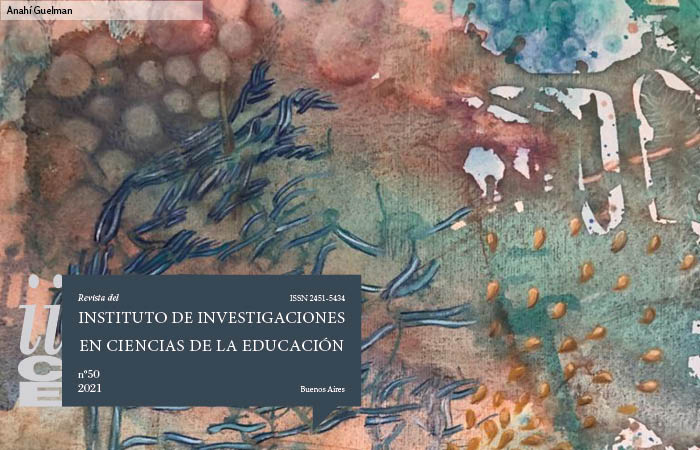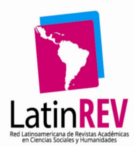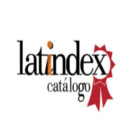Building situated knowledge agendas: experiences from the University of the Republic in Uruguay
Keywords:
production of knowledge in interaction, participation, non academic actors, collaboration, co-production
Abstract
Production of knowledge in interaction among various actors reflects a trajectory of social commitment of public Latin American universities. This article focuses on the characteristics that the participation of non-academic actors has within knowledge production processes in interaction. The guiding question aims to identify the roles non-academic actors acquire when they engage in knowledge processes with academic actors. For this purpose, a set of projects funded by the Research Program Oriented to Social Inclusion of the University of the Republic (Uruguay) is taken as an empirical reference. The participation of non-academic actors is examined on the basis of three specific dimensions (profiles, communication flow, and intervention) that contribute to the construction of knowledge processes in a gradient from collaboration to co-production. In terms of ideal types, collaboration and co-production simplify the heterogeneity of possible relationships between “experts and laymen” when situated knowledge agendas are fostered.Downloads
Download data is not yet available.
References
Alzugaray, S.; Mederos, L. y Sutz, J. (2012). Building Bridges: Social inclusion problems as research and innovation issues. Review of Policy Research, 29(6): 776-796.
----------. (2013). Investigación e innovación para la inclusión social: la trama de la teoría y de la política. . ISEGORÍA. Revista de Filosofía Moral y Política, (48): 25-50.
Arocena, R. y Sutz, J. (2006). El estudio de la Innovación desde el Sur y las perspectivas de un Nuevo Desarrollo. Revista Iberoamericana de Ciencia, Tecnología, Sociedad e Innovación. OEI, 7.
----------. (2016). Universidades para el desarrollo. Organización de las Naciones Unidas para la Educación, la Ciencia y la Cultura, 7. Disponible en: http://www.unesco.org/new/fileadmin/MULTIMEDIA/FIELD/Montevideo/pdf/PolicyPapersCILAC-UnivParaDesarrollo.pdf .
Bianco, M.; Oliva, E.; Sutz, J. y Tomassini, C. (2010). Investigación Orientada a la Inclusión Social: complejidades y desafíos para el contrato social de la ciencia en contextos de subdesarrollo. VIII Jornadas Latinoamericanas de Estudios Sociales de la Ciencia y la Tecnología. Buenos Aires.
Bunders, J. (2010). How can transdisciplinary research contribute to knowledge democracy? En R. i. (ed.), Knowledge Democracy. Consequences for Science, Politics and Media. Heidelberg, Springer.
Casas, R. (2001). Formación de Redes de Conocimiento. Una perspectiva regional desde México. Barcelona, IIS-UNAM/ANTHROPOS.
Cassiolato, J. y Lastres, H. (2003). Novas políticas na era do conhecimento: o foco em arranjos produtivos locais. Río de Janeiro, Instituto de Economia, UFRJ.
Funtowicz, S. y Ravetz, J. (1993). Science for the Post-Normal Age. Perspectives on Ecological Integrity: 146-161.
Gibbons, M.; Limoges, C. N.; Schwartzman, S.; Scott, P. y Trow, M. (1994). The new production of knowledge: the dynamics of science and research in contemporary societies. Londres, SAGE.
Goñi Mazzitelli, M. (2014). Agendas de investigación en el sur. Desafíos y dificultades para construir caminos propios. La experiencia de la Universidad de la República, Uruguay. En Bienes comunes. Espacio, conocimiento y propiedad intelectual. Buenos Aires, CLACSO.
Goñi Mazzitelli, M.; Zeballos, C. y Bianco, M. (2020). Un instrumento de investigación dirigido al bienestar y calidad de vida. El Programa de investigación e innovación orientado a la inclusión social (Universidad de la República). En Boni, A. 16 caminos hacia la transformación. Explorando la relación universidad y sociedad y su contribución al bienestar desde la red CYTED Multibien, pp. 12-19. Valencia, Universitat Politècnica de València.
Haraway, D. (1988). Situated Knowledges: The Science Question in Feminism and the Privilege of Partial Perspective. Feminist Studies, Vol. 14 (3): 575-599.
Harding, S. (1992). Rethinking Standpoint Epistemology: What is Strong Objectivity? En Alcoff, L. y Potter, E. Feminist Epistemologies. Nueva York, Routledge.
Hess, D. (2007). Alternative pathways in Science and Industry: activism, innovation and the environment in the era of globalization. Massachusetts, MIT Press.
----------. (2013). Epistemic Modernization and Social Movements. Mobilizing Ideas. Disponible en: https://mobilizingideas.wordpress.com/2013/04/01/epistemic-modernization-and-social-movements/
Hessels, L. K. y van Lente, H. (2008). Re-thinking new knowledge production: A literature review and a research agenda. Research Policy, (37): 740-760.
Hirsch Hadorn, G.; Bradley, D.; Pohl, C.; Rist, S. y Wiesmann, U. (2006). Implications of transdisciplinarity for sustainability research. Ecologilcal Economies, (60): 119-128.
Hirsch Hadorn, G.; Hoffmann-Riem, H. y Biber-Klemm, S. (2008). Handbook of Transdisciplinary Research. Springer Science.
Jahn, J.; Bergmann, M. y Keil, F. (2012). Transdisciplinarity: Between mainstreaming and marginalization. Ecological Economics, (79): 1-10.
Jasanoff, S. (2003). In a constitutional moment: Science and social order at the millennium. En Joerges, B. y Nowotny, H. Social studies of science and technology: Looking back, ahead, yearbook of the sociology of the sciences, pp. 155-180. Dordrecht, Kluwer.
----------. (2004a). Science and citizenship: a new synergy. Public Policy, 31 (2).
---------- (2004b). States of Knowledge: The Co-production of Science and Social Order. Londres, Routledge.
Lafuente, A. (2007). El carnaval de la tecnociencia. Madrid, Gadir.
Naidorf, J. (2014). Knowledge Utility: from Social Relevance to Knowledge Mobilization. Education Policy Analysis Archives, 22 (70). Disponible en: http://epaa.asu.edu/ojs/article/view
Naidorf, J. y Perrotta, D. (2015). La ciencia social politizada y móvil de una nueva agenda latinoamericana orientada a prioridades. Revista de la Educación Superior, (44): 19-46.
Nowotny, H. (1993). Socially Distributed Knowledge: five spaces for science to meet the public. PUS: 307-319.
----------. (2001). Re-thinking science. Knowledge and the public in an age of uncertainty. Cambridge. Cambridge University Press.
Pohl, C. (2007). From science to policy through transdisciplinary research. Environmental Science and Policy, (11): 46-53.
Pohl, C. y Hirsch Hadorn, G. (2007). Principles for Designing Transdisciplinary Research. Munich, Oekom Verlag.
Pohl, C.; van Kerkhoff, L.; Hirsch Hadorn, G. y Bammer, G. (2008). Integration. En Hirsch Hadorn, G. Handbook of Transdisciplinary Research, pp. 411-424. Bern, Springer.
Polk, M. (2014). Achieving the promise of transdisciplinarity: a critical exploration of the relationship between transdisciplinary research and societal problem solving. Sustainability Science, 9 (4): 439-451.
Regeers, B. (2009). Making the invisible visible. Analysing the development of strategies and changes in knowledge production to deal with persistent problems in sustainable development. Oisterwijk, Boxpress.
Regeers, B. y Bunders, J. (2009). A transdisciplinary approach: to complex societal issues. Amsterdam, VU University-Athena Institute.
Sutz, J. (2010). Ciencia, Tecnología, Innovación e Inclusión Social: una agenda urgente para universidades y políticas. Revista Psicología. Conocimiento y Sociedad, Vol. 1, Nº 1. Disponible en: https://revista.psico.edu.uy/index.php/revpsicologia/article/view/19.
Sutz, J.; Tomassini, C.; Zeballos, C.; Goñi Mazzitelli, M. y Rodales, M. (2019). Ten years of research and innovation for social inclusion in the uruguayan public university: policy lessons learned. Dortmund, Sozialforschungsstelle, TU Dortmund University.
Thompson Klein, J. (2016). Conclusions. Expanding the international dialogue in interdisciplinarity. Issues in Interdisciplinary Studies, (34): 200-207.
Wenger, E. (1998). Communities of practice. Learning, meaning and identity. Cambridge, Cambridge University Press.
----------. (2013). Investigación e innovación para la inclusión social: la trama de la teoría y de la política. . ISEGORÍA. Revista de Filosofía Moral y Política, (48): 25-50.
Arocena, R. y Sutz, J. (2006). El estudio de la Innovación desde el Sur y las perspectivas de un Nuevo Desarrollo. Revista Iberoamericana de Ciencia, Tecnología, Sociedad e Innovación. OEI, 7.
----------. (2016). Universidades para el desarrollo. Organización de las Naciones Unidas para la Educación, la Ciencia y la Cultura, 7. Disponible en: http://www.unesco.org/new/fileadmin/MULTIMEDIA/FIELD/Montevideo/pdf/PolicyPapersCILAC-UnivParaDesarrollo.pdf .
Bianco, M.; Oliva, E.; Sutz, J. y Tomassini, C. (2010). Investigación Orientada a la Inclusión Social: complejidades y desafíos para el contrato social de la ciencia en contextos de subdesarrollo. VIII Jornadas Latinoamericanas de Estudios Sociales de la Ciencia y la Tecnología. Buenos Aires.
Bunders, J. (2010). How can transdisciplinary research contribute to knowledge democracy? En R. i. (ed.), Knowledge Democracy. Consequences for Science, Politics and Media. Heidelberg, Springer.
Casas, R. (2001). Formación de Redes de Conocimiento. Una perspectiva regional desde México. Barcelona, IIS-UNAM/ANTHROPOS.
Cassiolato, J. y Lastres, H. (2003). Novas políticas na era do conhecimento: o foco em arranjos produtivos locais. Río de Janeiro, Instituto de Economia, UFRJ.
Funtowicz, S. y Ravetz, J. (1993). Science for the Post-Normal Age. Perspectives on Ecological Integrity: 146-161.
Gibbons, M.; Limoges, C. N.; Schwartzman, S.; Scott, P. y Trow, M. (1994). The new production of knowledge: the dynamics of science and research in contemporary societies. Londres, SAGE.
Goñi Mazzitelli, M. (2014). Agendas de investigación en el sur. Desafíos y dificultades para construir caminos propios. La experiencia de la Universidad de la República, Uruguay. En Bienes comunes. Espacio, conocimiento y propiedad intelectual. Buenos Aires, CLACSO.
Goñi Mazzitelli, M.; Zeballos, C. y Bianco, M. (2020). Un instrumento de investigación dirigido al bienestar y calidad de vida. El Programa de investigación e innovación orientado a la inclusión social (Universidad de la República). En Boni, A. 16 caminos hacia la transformación. Explorando la relación universidad y sociedad y su contribución al bienestar desde la red CYTED Multibien, pp. 12-19. Valencia, Universitat Politècnica de València.
Haraway, D. (1988). Situated Knowledges: The Science Question in Feminism and the Privilege of Partial Perspective. Feminist Studies, Vol. 14 (3): 575-599.
Harding, S. (1992). Rethinking Standpoint Epistemology: What is Strong Objectivity? En Alcoff, L. y Potter, E. Feminist Epistemologies. Nueva York, Routledge.
Hess, D. (2007). Alternative pathways in Science and Industry: activism, innovation and the environment in the era of globalization. Massachusetts, MIT Press.
----------. (2013). Epistemic Modernization and Social Movements. Mobilizing Ideas. Disponible en: https://mobilizingideas.wordpress.com/2013/04/01/epistemic-modernization-and-social-movements/
Hessels, L. K. y van Lente, H. (2008). Re-thinking new knowledge production: A literature review and a research agenda. Research Policy, (37): 740-760.
Hirsch Hadorn, G.; Bradley, D.; Pohl, C.; Rist, S. y Wiesmann, U. (2006). Implications of transdisciplinarity for sustainability research. Ecologilcal Economies, (60): 119-128.
Hirsch Hadorn, G.; Hoffmann-Riem, H. y Biber-Klemm, S. (2008). Handbook of Transdisciplinary Research. Springer Science.
Jahn, J.; Bergmann, M. y Keil, F. (2012). Transdisciplinarity: Between mainstreaming and marginalization. Ecological Economics, (79): 1-10.
Jasanoff, S. (2003). In a constitutional moment: Science and social order at the millennium. En Joerges, B. y Nowotny, H. Social studies of science and technology: Looking back, ahead, yearbook of the sociology of the sciences, pp. 155-180. Dordrecht, Kluwer.
----------. (2004a). Science and citizenship: a new synergy. Public Policy, 31 (2).
---------- (2004b). States of Knowledge: The Co-production of Science and Social Order. Londres, Routledge.
Lafuente, A. (2007). El carnaval de la tecnociencia. Madrid, Gadir.
Naidorf, J. (2014). Knowledge Utility: from Social Relevance to Knowledge Mobilization. Education Policy Analysis Archives, 22 (70). Disponible en: http://epaa.asu.edu/ojs/article/view
Naidorf, J. y Perrotta, D. (2015). La ciencia social politizada y móvil de una nueva agenda latinoamericana orientada a prioridades. Revista de la Educación Superior, (44): 19-46.
Nowotny, H. (1993). Socially Distributed Knowledge: five spaces for science to meet the public. PUS: 307-319.
----------. (2001). Re-thinking science. Knowledge and the public in an age of uncertainty. Cambridge. Cambridge University Press.
Pohl, C. (2007). From science to policy through transdisciplinary research. Environmental Science and Policy, (11): 46-53.
Pohl, C. y Hirsch Hadorn, G. (2007). Principles for Designing Transdisciplinary Research. Munich, Oekom Verlag.
Pohl, C.; van Kerkhoff, L.; Hirsch Hadorn, G. y Bammer, G. (2008). Integration. En Hirsch Hadorn, G. Handbook of Transdisciplinary Research, pp. 411-424. Bern, Springer.
Polk, M. (2014). Achieving the promise of transdisciplinarity: a critical exploration of the relationship between transdisciplinary research and societal problem solving. Sustainability Science, 9 (4): 439-451.
Regeers, B. (2009). Making the invisible visible. Analysing the development of strategies and changes in knowledge production to deal with persistent problems in sustainable development. Oisterwijk, Boxpress.
Regeers, B. y Bunders, J. (2009). A transdisciplinary approach: to complex societal issues. Amsterdam, VU University-Athena Institute.
Sutz, J. (2010). Ciencia, Tecnología, Innovación e Inclusión Social: una agenda urgente para universidades y políticas. Revista Psicología. Conocimiento y Sociedad, Vol. 1, Nº 1. Disponible en: https://revista.psico.edu.uy/index.php/revpsicologia/article/view/19.
Sutz, J.; Tomassini, C.; Zeballos, C.; Goñi Mazzitelli, M. y Rodales, M. (2019). Ten years of research and innovation for social inclusion in the uruguayan public university: policy lessons learned. Dortmund, Sozialforschungsstelle, TU Dortmund University.
Thompson Klein, J. (2016). Conclusions. Expanding the international dialogue in interdisciplinarity. Issues in Interdisciplinary Studies, (34): 200-207.
Wenger, E. (1998). Communities of practice. Learning, meaning and identity. Cambridge, Cambridge University Press.
Published
2021-07-01
How to Cite
Goñi Mazzitelli, M., Zeballos Lereté, C., & Bianco Bozzo, M. (2021). Building situated knowledge agendas: experiences from the University of the Republic in Uruguay. Revista Del IICE, (50), 75-90. https://doi.org/10.34096/iice.n50.11267
Issue
Section
Dossier: Libre acceso al conocimiento y pub. científicas en el campo educativo











